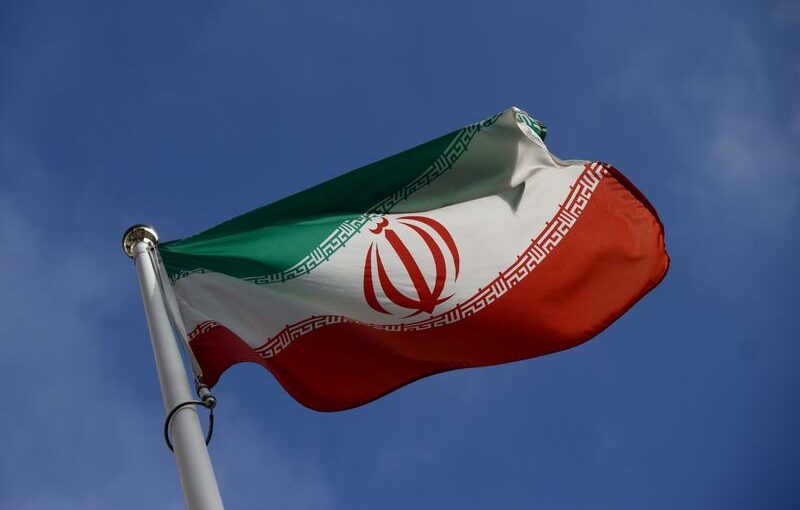DUBAI (Reuters) – Iran and world powers have made some progress on how to revive the 2015 nuclear accord later abandoned by the United States, and an interim deal could be a way to gain time for a lasting settlement, Iranian officials said on Monday.
Tehran and the powers have been meeting in Vienna since early April to work on steps that must be taken, touching on U.S. sanctions and Iran’s recent breaches of the deal, to bring back Tehran and Washington into full compliance with the accord.
“We are on the right track and some progress has been made, but this does not mean that the talks in Vienna have reached the final stage,” Foreign Ministry spokesman Saeed Khatibzadeh told a weekly news conference in Tehran.
“Practical solutions are still far away, but we have moved from general words to agreeing on specific steps towards the goal,” Mikhail Ulyanov, Russia’s ambassador to the U.N. nuclear watchdog agency (IAEA), wrote on Twitter on Monday.
U.S. President Joe Biden’s administration, which took office in January pledging to rejoin the deal, has said it is ready to remove “all sanctions that are inconsistent” with the accord, but not spelled out which measures it means.
Iran’s clerical establishment has said it will not return to strict observance of the 2015 agreement unless all sanctions reimposed or added by former President Donald Trump after he ditched the accord in 2018 are rescinded first.
Diplomats say sequenced steps by each side may offer a solution, while Iranian officials told Reuters the high-stakes talks in Vienna might yield an interim deal to give space to diplomacy on a lasting settlement.
“The May deadline is approaching…What is being discussed in Vienna for the near term is the main outlines of an interim deal to give all sides more time to resolve complicated technical issues,” said an Iranian official.
He referred to a law passed by Iran’s hardline-dominated parliament that obliges the government to harden its nuclear stance if sanctions are not lifted.
The law mandated an end to short-notice U.N. nuclear inspections from Feb. 21, but Tehran and the IAEA agreed to keep up “necessary” monitoring for up to three months.
Another Iranian official said that if a political agreement was reached on technical steps to remove all sanctions, Tehran might suspend enrichment to 20% purity in return for a release of blocked Iranian funds in other countries.
Iran says $20 billion of its oil revenue has been frozen in countries like South Korea, Iraq and China under the U.S. sanctions regime since 2018.
“Unblocking Iran’s funds is a good start. An interim deal will give us time to work on removal of all sanctions on Iran,” the second Iranian official said.
On top of sanctions reimposed in 2018, Trump added new ones, including classifying Iran’s elite Revolutionary Guards as a terrorist group and blacklisting Iran’s Central Bank for alleged terrorist financing.
EU SEES GOODWILL TO SAVE 2015 DEAL
The European Union’s top diplomat, Josep Borrell, said on Monday he saw a willingness to save the 2015 deal, citing progress at the talks in Vienna.
“I think that there is real goodwill among both parties (Iran and the United States) to reach an agreement, and that’s good news,” he said.
“I think that both parties are really interested in reaching an agreement, and they have been moving from general to more focused issues, which are clearly, on one side sanction-lifting, and on the other side, nuclear implementation issues.”
At the same time, Iran has been overstepping the deal’s limits on nuclear activity since Washington withdrew in 2018, recently raising uranium enrichment to 20% fissile purity, a level where uranium is considered to be highly enriched and a significant step towards bomb-grade material.
The 2015 pact had capped the level of enrichment purity at 3.67% – suitable for generating civilian nuclear energy.
Complicating Biden’s objective to rejoin the deal, Tehran last week launched enrichment to 60% purity at its main Natanz plant after a damaging blast at the site that Tehran blamed on sabotage by arch-foe Israel, which opposes diplomacy with Iran.
Around 90% fissile purity is needed for a nuclear explosive, Tehran has repeatedly denied seeking to weaponise enrichment, though Western intelligence services and the IAEA believe it once had a covert atom bomb programme that was shelved in 2003.
Source: Read Full Article
